Zika: Where are we now?
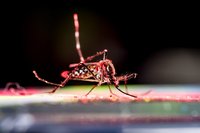
Professors in Notre Dame’s Department of Biological Sciences and members of the Eck Institute reflect on the outbreak, the challenges presented by the virus and the work yet to be done to help health professionals and key decision makers protect their citizens.
Notre Dame scientists study the past to predict climate change
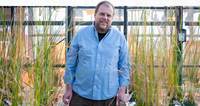
A chance meeting a decade ago in a graduate school hallway led paleoecologist Jason McLachlan to create a Jurassic Park-like wonder in Notre Dame’s greenhouse, where rows of salt marsh bulrushes have germinated from 100-year-old seeds.
Grad student will present new cancer findings at St. Jude Children’s Research Hospital
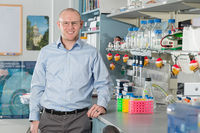
Biological sciences graduate student Joshua Mason has been selected to attend the 2017 National Graduate Student Symposium (NGSS) at St. Jude Children’s Research Hospital in Memphis, Tennessee. Selection in the NGSS is extraordinarily competitive as application is by invitation only. Over 1,500 students were invited to apply for the 2017 symposium of which only 42 students were selected to participate. Mason and the other selected participants will receive an all expenses paid trip to St. Jude this Spring where they will give a talk, present a poster, and meet with St. Jude scientists.
Research reveals a triple-drug regimen that could eliminate elephantiasis

A collaborative modeling study among three research groups, including Edwin Michael’s laboratory in the Department of Biological Sciences, reveals that a triple-drug regimen could accelerate the elimination of lymphatic filariasis, a mosquito-borne parasitic disease also known as elephantiasis. The study, which shows that the regimen requires far fewer applications than current two-drug combinations, is also significant because it provides a unified scientific consensus on the subject for policymakers who sometimes face a confusing array of separate claims.
Researchers publish hypothesis to explain speciation in Rhagoletis flies
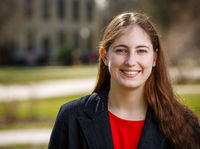
Research led by fifth-year graduate student Cheyenne Tait in the Biological Sciences laboratory of Jeffrey L. Feder at Notre Dame has identified structures on the antennae of Rhagoletis flies that could explain why the flies are on their way to diverging into two distinct species even though they are not geographically separated.
Researchers Confirm Molecule's Role in Kidney Formation

The discovery could help advance understanding to address issues such as birth defects and repair of the kidney after illness or injury.
Improving Snow Measurement
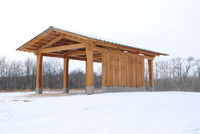
Although it may seem simple to calculate, snowfall cannot be well measured by simply placing a yardstick in the ground. In actuality, snow measurement is much more complicated and oftentimes the most accurate snow measurement devices are costly. However, two Notre Dame graduate students are working to improve the snow measurement process in an effective and affordable manner.
Biology major, Alexis Doyle, named Rhodes Scholar
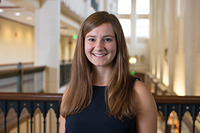
Doyle, of Los Altos, California, and Watkins, a native of Blacksburg, Virginia, are two of 32 Rhodes Scholars selected from a pool of 882 candidates who had been endorsed by their colleges and universities. They are Notre Dame’s 18th and 19th Rhodes Scholars and will commence their studies at Oxford University in October.
Channeling Our Inner Darwin: Adventures in the Galapagos Islands

During fall break, I traveled with thirteen other Notre Dame undergraduate students to the Galápagos Islands as part of a new science course, Practicum in Field Environmental Biology. Under the direction of Biological Science Professors, Gary Lamberti and Malcolm Fraser, we explored the islands and investigated individual research projects, which focused on observation of unique species in the islands. Throughout the week, our tour guide, Luis, offered insight into the amazing characteristics of the islands and explained how each island’s environment is conducive to the success of unique species. I have never been in a place quite like it, where you have to compete with sea lions for a space to sit on the boardwalk, or where iguanas will walk right in front of you and completely disregard your presence. The Galapagos Islands are the perfect example of nature existing with no fear of humans, and the protection of them and respect for the environment there was unquestionable.
In memoriam: Rev. James J. McGrath, C.S.C., professor emeritus of biological sciences
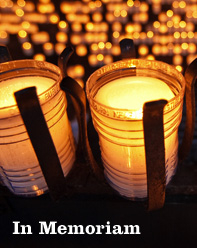
McGrath was an assistant chair of the Department of Biological Sciences, a dorm rector and later chaplain of the Notre Dame Fire Department.
Identifying DNA and Developing Data
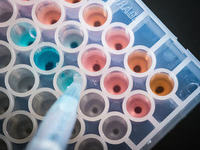
When it comes to battling disease and maintaining healthy environments, DNA sequencing can be imperative to success. At the University of Notre Dame, the Genomics and Bioinformatics Core Facility (GBCF) supports research in many areas that increasingly rely on DNA sequencing, including cancer biology, vector-borne diseases, the development of drug and antibiotic resistance, monitoring invasive species, and much more.
Notre Dame researchers to lead NSF Dimensions of Biodiversity study
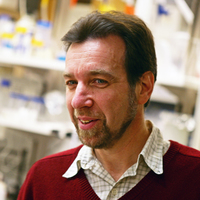
The study will focus on the apple maggot fly, Rhagoletis pomonella, and the parasitoid wasps that attack the fly.
Students share Galapagos Islands diversity with area children
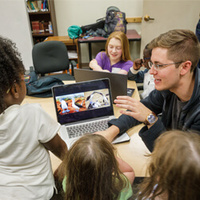
Days before their Fall Break trip to the Galapagos Islands as part of a course in the Department of Biological Sciences, 14 Notre Dame undergraduates introduced the Darwin-inspiring islands to youngsters at the Robinson Community Learning Center who will be “virtual explorers” with them through the adventure.
Shogren wins EPA graduate fellowship
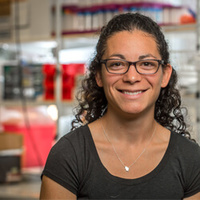
Biological sciences doctoral candidate, Arial Shogren, has been awarded the Science to Achieve Results (STAR) Graduate Fellowship from the U.S. Environmental Protection Agency (EPA). Shogren received the $132,000 grant for her project, “Modeling the Transport of Environmental DNA (eDNA)” in the EPA’s Emerging Environmental Approaches and Challenges Innovation program.
Biology NSF REU students present research findings
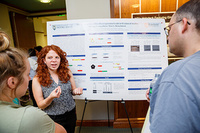
This summer, the University of Notre Dame welcomed 14 students to campus to participate in the NSF-funded Research Experience for Undergraduates (REU) program in the Department of Biological Sciences.
Dr. Hyde and team awarded $1.9 million from NIH as part of the effort to reverse blindness
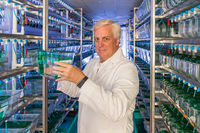
Dr. David Hyde and his team have been awarded over $1.9 million from the National Institute of Health (NIH) to lead one of six projects planned to identify biological …
Researchers to pursue novel Zika solution
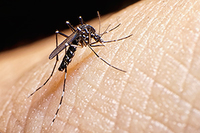
A team of researchers from the University of Notre Dame’s Eck Institute for Global Health (EIGH) has received a grant from the USAID to pursue a novel solution to the Zika outbreak. The team, led by Molly Duman Scheel, an associate professor of medical and molecular genetics at the Indiana University School of Medicine-South Bend (IUSM-SB), associate adjunct professor of biological sciences at Notre Dame and member of EIGH, is developing an insecticide to destroy Aedes aegypti larvae before the mosquitoes are able to hatch and transmit Zika.
Uncovering a new pathway to halting metastasis
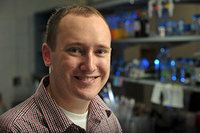
Metastasis, the process by which cancer cells leave the primary tumor and spread to other sites in the body, is responsible for more than 90 percent of cancer deaths. Thus, there is a significant need to improve the therapeutic options for patients who suffer from metastatic disease. New research from the laboratory of Zachary T. Schafer, associate professor in the Department of Biological Sciences, Coleman Foundation Collegiate Chair of Cancer Biology and researcher in the Harper Cancer Research Institute, could lead to these new therapies.
Reinterpreting the fossil record on jaws
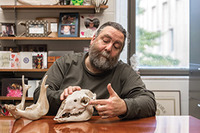
Scientists use the fossil record to make judgments on the physiology and behavior of species. But are those interpretations correct? New research from a team of researchers led by Matthew Ravosa, professor of biology and concurrent professor of both aerospace and mechanical engineering and anthropology, puts into question how we interpret the behavior of extinct organisms from their fossil remains, and the greater role of plasticity — or the adaptive fine-tuning of the link between anatomy and behavior — in determining evolution diversity.
Holding the Key to Affordable Biotherapeutics
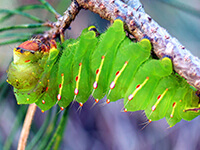
Malcolm Fraser Jr., the University of Notre Dame’s Rev. Julius A. Nieuwland, C.S.C., Professor of Biological Sciences, is conducting research that utilizes the silkworm caterpillar’s silk gland to conduct mammalian-like protein production with the end goal of producing cost-effective biotherapeutic products, or therapeutic materials created utilizing recombinant DNA technology, that can be used to treat life-threatening and chronic diseases.